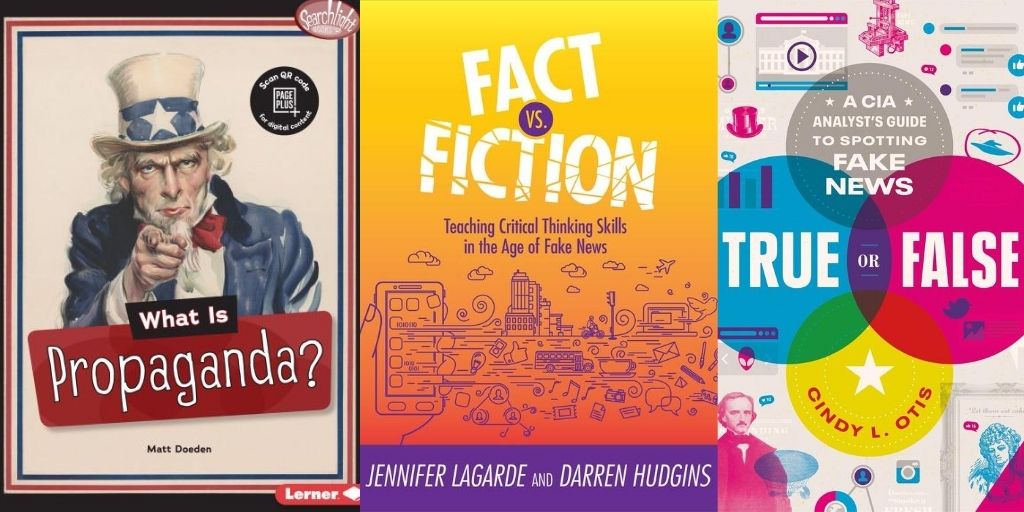Sunday Reflections: Colonel Mustard in the Library with the Lead Pipe, aka on “Due Process” in Literature and Yes, Another Discussion of MOXIE
A teen stumbles on a body in a field. Or their best friend is missing. Or they get a mysterious package in the mail. What do they do? They almost never call the police. Never. In the great tradition of Scooby Doo, they investigate themselves, because of course they do. In fact, if they didn’t, there would be no novel.
While investigating they touch everything. They move important information. They don’t talk to each other about what they find, let alone the authorities. Yet I have never read a review that suggested a mystery novel was a problem because the main characters didn’t follow due process.
ADVERTISEMENT
ADVERTISEMENT
In case you are wondering what I am talking about, a recent Kirkus review of Moxie by Jennifer Mathieu complained that this novel was a problem because it embraced vigilante justice and ignored due process. I have already written my thoughts about this book and this review earlier this week, but I can’t help continuing to think about the concept of due process. (See Let’s Talk about MOXIE by Jennifer Mathieu)
If we demanded that our main characters followed the letter of the law in every novel that we read the entire mystery, thriller and horror genres would cease to exist immediately. Poof, they are gone.
We read about teen crime fighters, teen spies, teen hackers and more, but a teen girl sharing with others that she was the victim of an attempted rape is a line you can not cross?
Sexual crimes are largely under-reported. Do you know why? It’s because of the ways that we treat victims who come forward. They will be questioned about what they wore, what they drank, where they were, their sexual history and more. They will be treated as if it is all their fault. Due process does not favor those who come forward and ask for justice for the sexual crimes committed against them.
The fact that this reviewer insists upon due process in a FICTIONAL NOVEL meant to empower young women highlights how loathe we are to give a voice to the victims of sexual violence. I have never seen this insistence of due process in any other type of novel, nor have I seen a fear of vigilante justice, even in novels that actually include vigilante justice. Because we understand that novels are, well, fiction.
So here I am days later still grappling with this review but not because of the review itself, but because of what it reinforces about rape culture. We don’t believe victims. We hold conversations about sexual violence to a different standard then any other discussions about criminal behavior. We ask things of the survivors of sexual violence that we don’t ask the survivors of any other crime.
But this review is written by a woman? Yes, yes it is. And women are raised in the same patriarchal society that teaches us that the voice of men and the concerns about men’s futures are more important than the voices of the victims of sexual violence. It’s hard work breaking down that internalized misogyny. It’s work that even the most feminist of feminists are still doing. News, media, churches, our own families – they reinforce the patriarchy from the moment we are born and it is hard and constant work to break that down and to choose to give women equal footing. That is, by the way, what Moxie is doing, it’s doing the hard work of breaking that down and empowering teen girls by reminding them that they deserve to have a voice. But even in a book designed to empower and give teen girls a voice, many are asking but what about the men? It’s hard to center the female voice because we have been taught that we can’t, that we shouldn’t.
For another great discussion of Moxie, check out this Booklist review: Girls to the Front: Jennifer Mathieu’s MOXIE
And that refusal to listen to and center the female voice – even on occasion – is part of the reason why there is a group of 12 male senators writing a secret healthcare bill that will dramatically impact women’s healthcare choices and costs. It’s why male senators continue to ask female senators to be quiet or “less hysterical”, despite the fact that the data continues to show us that even when women speak less than men, they are perceived as dominating the conversation.
ADVERTISEMENT
ADVERTISEMENT
It’s why we have a review demanding that a fictional novel become a how-to-manual when it involves a female main character accusing a male character of rape (actually, attempted rape if we are going to precise).
I was a middle school child who tried to tell the adults around me that I was the victim of sexual violence. I followed “due process” and nothing ever came of it. It was swept under the rug, as these things often are, and my voice was taken from me. I never got justice. In fact, I have spent the rest of my life trying to navigate and juggle family situations in a way that keeps me safe from having to be around the person who violated me. The work was put on me, a child, because every adult around me – including law enforcement – failed me. I now talk about what happened to me in coded ways so as to protect myself from any legal repercussions from the person who violated me as a child. If you have read this blog long enough you will realize that I never say who or what relationship I have with this person; I do this so that this person can never come back and sue me for character assassination. Now I protect him even though no one protected me. That’s what it is like being the victim of sexual violence and trying to follow due process.
I imagine what it would have been like for me if I had read a book like Moxie during the time that I was being abused. If I would have felt more empowered to ask for help sooner, to demand justice more fully, to give myself a voice instead of growing old in shameful silence. I wonder what it would be like to have had people stand up with me and walk out of a school in a show of solidarity and support instead of having a family that complained that I was being unfair to my abuser and making the family uncomfortable and strained. Moxie is not supposed to be a how-to-manual, because no novel is by definition, but it is an empowering and inspiring one. And for that I am forever grateful. Teenage me is glad that today’s teens will have this book that reminds them that they don’t have to be silent, that they don’t have to center men, and that they can choose to be advocates and activists.
If you can read a mystery novel and not complain about the lack of due process then you should be able to read a novel about female empowerment and not complain about the lack of due process. If not, you should probably take some time to reflect and ask yourself why.
Filed under: #SVYALit, #SVYALit Project
About Karen Jensen, MLS
Karen Jensen has been a Teen Services Librarian for almost 30 years. She created TLT in 2011 and is the co-editor of The Whole Library Handbook: Teen Services with Heather Booth (ALA Editions, 2014).
ADVERTISEMENT
ADVERTISEMENT
SLJ Blog Network
One Star Review, Guess Who? (#202)
This Q&A is Going Exactly As Planned: A Talk with Tao Nyeu About Her Latest Book
Exclusive: Giant Magical Otters Invade New Hex Vet Graphic Novel | News
Parsing Religion in Public Schools
ADVERTISEMENT










I can’t wait to read Moxie. I’m really, really excited to read such a powerful novel especially because–I’m showing my age here–zines were a huge part of my life when I was a teenager. Thank you so much for writing this post, and for the original one. It means so much much to me, and I’m sure many others. I’m still thinking about your question–“Why can’t a book about female empowerment be about female empowerment?” It is heartbreaking how simple and true this statement is, and people still need to be reminded of it. It also struck a chord with me that the review in Kirkus is by a woman… I used to be a lot stronger about my viewpoint, pointing things out that I thought were extremely obvious to me, such as the Allison Bechdel Test for movies. Then one day I was screamed at about my “femi-nazi” perspective by another woman at the party. It was completely uncalled for, especially because I was not yelling to begin with. I’ve never been the same after the attack, especially because several men have pointed out that this woman is not offended by the things I deem unacceptable; as if this woman who thinks feminists are femi-nazis is allowed to be a spokesmodel for every other woman. It’s really, really confusing. I try to be a caring person for all genders, all people, everyone, and I try to listen fairly and with kindness, and it’s scary to be confronted like that. Female empowerment to me is an extremely simple concept, and yet it feels like one has to cut through so much baloney in order to be understand about its valuable message. Now more than ever, our teenage girls (and all girls) need to know that it is okay to stand up for yourself, and to keep fighting even if the higher ups don’t have your back just yet.